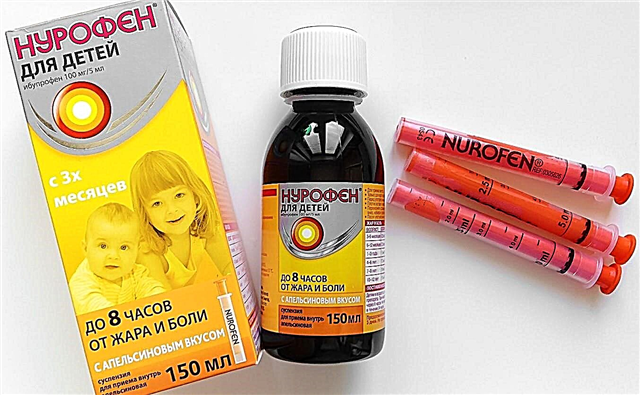
Hypertonicity of the uterus can be called one of the most frequent and most dangerous problems during pregnancy. To eliminate it, doctors use antispasmodic drugs, for example, "Papaverine". If the situation requires immediate help, and the risk of miscarriage is very high, the expectant mother is prescribed such a medicine in injections.

Features of the drug
"Papaverine" affects the smooth muscles of blood vessels and internal organs, including the muscular membrane of the uterus, resulting in a decrease in muscle tone and blood pressure. This effect allows the use of this medication. with pain syndrome caused by smooth muscle spasms, for example, with renal colic. Wherein the injection form acts faster than others (the product is also available in tablets and rectal suppositories), therefore it is in demand for emergency assistance.
The medicine itself is a transparent sterile solution, which is poured into 2 ml ampoules. It is most often colorless, but a greenish-yellow tint is also the norm. The drug is sold in carton packs of 5 or 10 ampoules. To purchase it, you must show a prescription from a doctor at the pharmacy. The active ingredient of this solution is papaverine hydrochloride at a concentration of 2% (each milliliter of the drug contains 20 mg), and the excipients are methionine, sterile water and Trilon B or edetate disodium.

When is it prescribed for pregnant women?
The most common indication for the use of "Papaverine" in women in the position - this is an increase in the tone of the uterus... Such a situation in the early stages is dangerous because it can lead to a miscarriage, and hypertonicity in the 2nd and 3rd trimester harms the development of the baby (interferes with the supply of nutrients) and can cause premature birth. Injections allow the quickest elimination of this problem, therefore, they are often chosen in situations where increased tone poses a threat to the pregnant woman and the baby in the womb.
Although the instructions for the solution do not indicate that such a drug can be used during pregnancy, gynecologists have been prescribing Papaverine injections for several decades and note their high effectiveness. According to doctors, such injections help reduce the risk of spontaneous miscarriage in the first trimester, and in the later stages prevent the onset of labor too early. At the same time, such a medication does not affect the development of babies.
In addition to hypertonicity, "Papaverine" injections can be used in other situations when a quick elimination of smooth muscle spasm is required. These include:
- renal colic;
- biliary colic;
- "White" fever (increased body temperature with simultaneous vasospasm of the extremities, which increases the risk of overheating of internal organs);
- increased blood pressure;
- bronchospasm;
- intestinal colic.
In all these cases, injections help to quickly relieve pain, relax blood vessels, restore organ function and lower blood pressure.


Potential harm
There are certain contraindications for using Papaverine. If they are not taken into account, injections can provoke unwanted consequences. For example, the drug is not used if the woman is hypersensitive to its components. It should not be used for tachycardia, liver diseases, increased intraocular pressure, thyroid diseases, AV blockade and many other pathologies.
Sometimes "Papaverine" in injections causes side effects, even if the woman has no contraindications.
After administration of the solution, drowsiness, a drop in blood pressure, headache, nausea, or an allergic reaction may be observed. In such situations, the use of this antispasmodic is abandoned and another therapy is selected.

How is it used?
The injection use of "Papaverine" in pregnant women requires caution, so the injections must be given by a health worker. The drug can be administered:
- intravenously;
- subcutaneously;
- intramuscularly.
Which method is preferable for a particular expectant mother is determined by the doctor after the examination. Self-administration of injections is strictly prohibited.

It is necessary to inject the solution into a vein very slowly in order to exclude a rapid drop in blood pressure and an increase in heart ratetherefore, intravenous injections are usually given in the form of droppers. For them, the solution from the ampoule is additionally diluted with isotonic sodium chloride solution. When using intramuscular injections, the drug is most often injected into the buttocks.
The dosage of the active substance is selected individually, but usually it is 20-40 mg per injection. Since the action of "Papaverine" is not very long, injections are performed 2 to 4 times a day with an interval of at least four hours... How long to take injections (for how many days to prescribe "Papaverine"), should also be determined by a specialist, taking into account the clinical picture and other factors.
As a rule, to to eliminate hypertonicity, "Papaverine" is supplemented with other medications, and the pregnant woman is prescribed bed rest. With a high threat of termination of pregnancy, a woman is hospitalized in order to constantly monitor her condition, since it can become complicated at any time and require immediate medical attention.

Analogs
If for some reason the use of Papaverine is impossible, most often it is replaced by an equally effective antispasmodic called "No-shpa". One of the forms of this medication is also a solution for injection, so this drug can be used in emergency cases to quickly relieve vasospasm and smooth muscles. This action of "No-shpy" provides the active ingredient of the drug, called drotaverine. It affects smooth muscle in the same way as Papaverine, therefore the indications for the appointment of these medicines are the same.
It is permissible to use "No-shpu" during pregnancy, since this medicine does not provoke developmental defects and does not have a harmful effect on the child. Instead of such a solution, other injection preparations of drotaverine can be used, for example, "Droverin", "Spazmol" or "Drotaverin".



